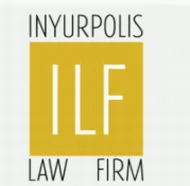On 1 January 2011 the Tax Code of Ukraine (hereinafter - the Code), adopted by Ukrainian parliament on 2 December 2010 had entered into force.
The Code's chapter that describes tax audits by Ukrainian tax authorities appeared to be the most interesting for taxpayers. According to Code, State tax service has the right to conduct cameral and documentary audits which were already known to taxpayers and the novel of new Code - factual audit.
Cameral audit is being done solely on the basis of data specified in the taxpayer's declaration.
Documentary audit is the one the subject of which is timeliness, accuracy, completeness of charges and payments of all taxes and fees mentioned in Code; compliance with monetary and other legislation that is under supervision of tax authorities; compliance with labor legislation concerning labor agreements and/or labor relations with employees (salaried employee) which must be conducted on the basis of tax returns (payments) of financial, statistical and other reports, tax registers and accounting that are provided by law; primary documents used in accounting and tax accounting and related to tax payments; fulfillment of other requirements concerning received in accordance with law documents and tax information including the results of audits of other taxpayers.
Documentary audits can be planned (routine) or unplanned (extraordinary), indoor or off-premise.
Planned audit is carried out according to plan scheduled by tax authorities with regard to the risk assigned to taxpayers. The Code defines that low risk taxpayers can be inspected not more often than once per three years; medium risk taxpayers can be inspected not more often than once per two years; high risk taxpayers can be inspected not more often than once per year.
Extraordinary audit is not foreseen by plan and can be conducted in cases specified in Code. It is necessary to mention that the reasons for conduction of such type of audit have increased so as the procuracy of tax authorities.
Off-premise audit is conducted either at the taxpayer's office or at the location of taxpayer's property related to his/her business. Indoor audit is being done at the tax authorities' office.
It is forbidden for tax police officers to participate in planned and unplanned audits conducted by the Ukrainian tax authorities, if such audits are not related to criminal procedures initiated in respect of relevant taxpayers. The manner of audits conducted by tax police officers is defined by relevant Law of Ukraine.
Among all, factual audits appeared to be most uncomfortable for taxpayers.
Factual inspection is conducted without warning of a taxpayer.
Mentioned audit must be performed at the factual place where taxpayer conducts his/her economic activity or at the location of other taxpayer's object of property. The audit concerns compliance with the procedure of execution of payment and cash transactions, license, patents, and certificates existence including certificates of registration, production and circulation of excisable goods, compliance with labor legislation.
Tax authorities have the right to conduct so called "control clearing transaction" concerning the compliance with the order of transaction payments and cash management operations prior to factual audit. The Code also allows tax authorities to conduct "timekeeping" during the inspection. It appears that timekeeping and control clearing transaction were borrowed from criminal procedures. Before the Code entered into force the term "control clearing transaction" appeared to be only in the Act "About investigation and search operations actions" which concerned criminal procedures. In any case, it remains unclear how such provision will be enforced as Tax Code does not foresee the procedure of control clearing transaction conduction.
As a result of any abovementioned audits, tax authorities have the right to draw up either a note – if there were no violations of Code or other legislation that is under their control or an act – in case of finding a violation. The taxpayer is obliged to sign the mentioned act and in case of his denial from signing, tax officers will obtain the right to arrest all taxpayer's assets.
Taxpayer has the right to lodge a complaint either to the State tax service or to the court.
Prior to 2011 Ukraine did not have a Tax code as a single, codified law, which could clearly regulate rights and responsibilities of taxpayers and tax. Instead, it had over 2,5 thousand regulations in the field of taxation which often were contradictory. National court's practice was contradictory too.
Summing up it is necessary to note that relevant provisions of Tax Code had expanded the grounds for conduction of all kinds of audit. Moreover, the Code gave wider discretion to tax authorities comparing to what they have before 2011. Therefore, taking together, acting provisions allow tax authorities to "visit" a business entity in any convenient time and that became a real concern of a taxpayer.
The content of this article is intended to provide a general guide to the subject matter. Specialist advice should be sought about your specific circumstances.

